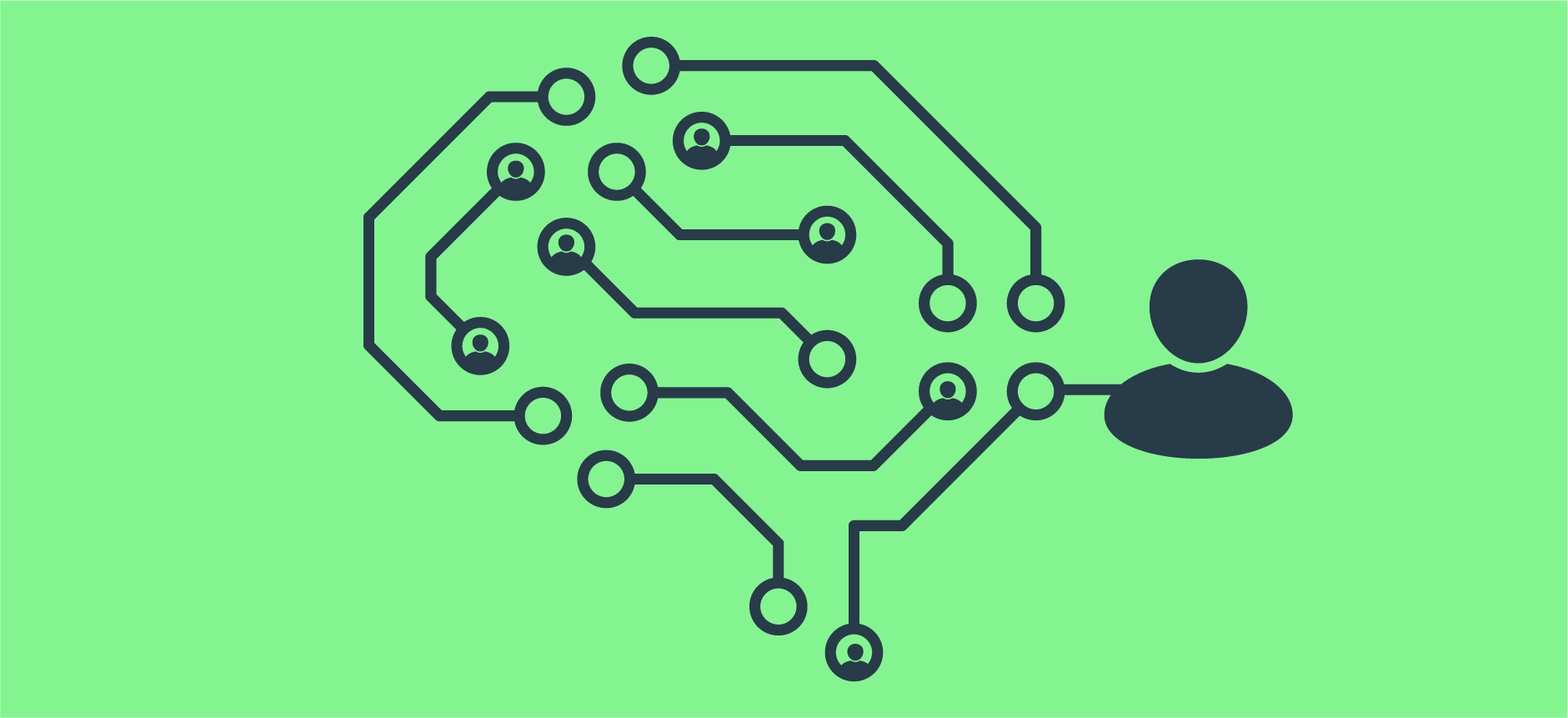CRM Consolidation and Optimization with AI-Based MDM

Summary
- CRM systems are essential for businesses, with 74% in the US using them.
- MDM, specifically AI-native data mastering, helps consolidate CRMs and improve data quality.
- Challenges with CRM data include missing, antiquated, and inaccurate information.
- AI-powered MDM enhances data quality, bridges silos, and improves customer experience, especially when consolidating CRMs.
- Key features of AI-powered MDM include AI/ML entity resolution, profile unification, workflow management, and data enrichment.
Customer Relationship Management (CRM) systems have become indispensable for modern businesses. In fact, 74% of businesses in the United States have implemented a CRM system to manage their customer interactions effectively, with 91% of businesses with over 11 employees now using a CRM.
Businesses around the world deploy CRMs to sell faster and smarter, build engaging experiences, and deliver personalized messages. CRM solutions also streamline customer interactions and sales processes and provide valuable insights that drive strategic decision-making, enabling companies to enhance customer satisfaction, boost retention, and ultimately increase profitability.
While it's common practice for organizations to employ multiple CRMs across different lines of business, departments, or regions, data is often inconsistent and fragmented data across various platforms, making it difficult to realize maximum value from their investment in CRM.
This is where Master Data Management (MDM), and more specifically AI-native data mastering, comes into play. MDM provides a structured approach to ensure the accuracy, consistency, and uniformity of critical business data, making it an invaluable tool when consolidating CRMs. By leveraging AI-powered MDM, organizations can streamline their CRM systems, enhance data quality, and ultimately drive more effective customer engagement strategies. And they can do so at scale, which is an important factor as the volume and complexity of data continues to grow.
In this blog, we delve into the significant value that MDM brings to CRM consolidation and how its inherent AI capabilities can transform an organization's customer relationship management approach.
The Differences Between CRM, MDM, and CDP Solutions
Before delving into how MDM helps organizations with CRM consolidation, it's important to understand the distinctions between CRM, MDM, and another common acronym, CDP. While initially it sounds like alphabet soup, each system plays an important and distinct role in an organization's data management strategy.
- Customer Relationship Management (CRM): A CRM solution tracks and catalogs direct interactions between a brand and its current and potential customers. This can include engagements, emails, social media, chats, texts, and support requests. CRMs are essential for managing sales pipelines, customer service inquiries, and marketing campaigns by keeping detailed records of all customer interactions.
- Customer Data Platform (CDP): CDPs create a persistent, unified database of individual customers from all data sources in order to provide a 360-degree view of the customer. CDPs integrate data from various touchpoints such as websites, mobile apps, and offline transactions to build comprehensive segmented customer profiles that inform personalized marketing strategies.
- Master Data Management (MDM): MDM platforms aggregate master data from multiple domains across the enterprise, including CRMs and CDPs, focusing on record matching, data transformation, and creating a single source of truth for the business. Using AI, MDM platforms ensure data consistency and accuracy at scale across all systems, supporting enterprise-wide data governance and compliance initiatives.
Addressing CRM Challenges
While CRM solutions have revolutionized business operations, they still face significant issues related to customer data. According to McKinsey, 80% of organizations surveyed report that some of their divisions operate in silos, while 62% of respondents reported that they did not have well-defined processes for integrating new and existing data sources. These challenges lead to:
- Missing Data: Information gaps in home addresses, cell phone numbers, business details, demographic data, or purchase history can result from incomplete data entry by sales staff or missing information from customer forms, leading to an incomplete view of customer interactions and preferences.
- Antiquated Data: Changes in email addresses, physical addresses, and telephone numbers over time can render customer data obsolete. These changes occur when customers move, change jobs, or update their contact details, which, if not regularly maintained and updated in the CRM, can lead to ineffective communication and lost opportunities.
- Inaccurate Data: Typos and conflicting information across multiple CRMs and operational systems can lead to discrepancies. For example, duplicate records or incorrect data entries can create confusion and reduce the efficiency of sales and marketing efforts.
Next-Gen CRM: It All Starts with AI-Native Data Mastering
As companies look to evolve their CRM solutions and realize greater value from them, they must first address their data quality issues. Treating CRMs as isolated systems can lead to data gaps and inaccuracies while improving customer data - and connecting CRM data with other systems - can enhance its value and prevent misguided decisions based on incomplete profiles.
That's why the next evolution of CRM requires organizations to embrace AI-native data mastering to create a unified, accurate customer profile from multiple, disparate data sources. This "golden record," or single record of truth, can empower marketing and boost sales, providing a comprehensive understanding of target audiences that the business can use as a trusted foundation for business intelligence, data warehouses, and other applications.
Fueling CRM Consolidation with Superior Data
Mastering customer data using MDM allows businesses to link disparate records from multiple CRM instances and other systems, resolve duplicate and missing information, and form high-confidence customer data that can be shared across the organization. MDM provides a central hub to consolidate, cleanse, enhance, and govern master data, ensuring a single point of truth or golden record for business-critical data.
Further, when MDM solutions take an AI-first approach, they deliver all the value and benefits that traditional, rules-based MDM simply cannot achieve, enabling organizations to expedite the discovery, enrichment, and maintenance of trustworthy golden customer records.
Implementing MDM for CRM Optimization
To successfully implement MDM, organizations must create a culture that discourages information silos and prioritizes the importance of high data quality across all operational systems. This requires the business to embrace:
- Data Stewardship: Assigning roles responsible for data maintenance and quality, reporting to the governance team, is a key aspect of data stewardship. Data stewards ensure that data is accurate, complete, and consistent across the organization, leading to better decision-making and operational efficiency.
- Governance: Establishing a framework that ensures data accuracy and consistency involves setting policies for data entry, validation, and maintenance, as well as defining roles and responsibilities for data management across departments.
- Consolidation: Integrating master data from multiple sources to provide a comprehensive view of the customer requires the organization to match and merge records from different systems to eliminate duplicates and inconsistencies, creating a unified customer profile that can be used across the organization.
Benefits of AI-powered MDM in CRM Consolidation and Optimization
- Improves Data Quality and Consistency: Implementing AI-powered MDM eliminates duplicate records and ensures data usability. By standardizing data formats and implementing validation rules at scale, MDM ensures that customer data is accurate and reliable, leading to more effective marketing and sales efforts.
- Bridges Silos: MDM unifies customer data across departments and systems for a streamlined experience. Using AI, it breaks down complex data silos, allowing for seamless data sharing and collaboration between teams, which enhances the overall customer experience.
- Enhances Customer Experience: Effective data mastering provides employees with higher-quality information to improve customer relationships. With a comprehensive view of customer interactions and preferences, sales and support teams can deliver more personalized and timely service, increasing customer satisfaction and loyalty.
- Supports Analysis: MDM facilitates data analysis by providing a centralized, well-organized dataset. MDM enables advanced analytics and reporting by consolidating data from various sources, helping businesses identify trends, measure performance, and make data-driven decisions.
- Provides a 360-Degree View: AI-native data mastering creates golden records that provide comprehensive customer insights for better decision-making. A unified customer profile allows businesses to understand customer behavior, preferences, and needs, leading to more targeted and effective marketing strategies.
- Traces Customer Lifecycles: MDM allows businesses to understand and respond to customer journeys more effectively. By tracking customer interactions and touchpoints throughout the lifecycle, MDM helps businesses identify opportunities for engagement and intervention, improving customer retention and lifetime value.
Key Features of AI-powered Master Data Management
AI-powered MDM involves policies and techniques to ensure data cleanliness, usability, and security, including:
- AI/ML Entity Resolution combines pre-trained AI-driven models with human feedback to reduce the complexity of data transformation, Using semantic comparisons with large language models (LLMs), organizations can identify discrete similarities and differences to contextualize the data, extract key features, and improve matching accuracy.
- Profile Unification that uses AI to deduplicate data and automatically merge profile information. This ensures that each customer has a single, accurate profile, reducing redundancy and improving data quality.
- Data Quality that automates data entry checks for consistent, high-quality information. Automated validation rules and data cleansing processes ensure that data is accurate, complete, and free of errors, even as the volume and complexity continues to grow.
- Workflow Management provides alerts for data stewardship and management. Using AI, MDM systems can automate workflow processes, such as data approval and review, ensuring that data management tasks are performed efficiently and consistently, even at scale.
- Data Governance dictates policy adjustments and operational impact analysis. A robust data governance framework ensures that data management practices align with business objectives and regulatory requirements, enhancing data security and compliance.
- Persistent IDs serve as a long-lasting reference to an entity across multiple data sources assigned by the MDM solution. Using persistent IDs, organizations can integrate information across multiple databases when there is no common identifier for the same entity, such as a person or an organization.
- Data Enrichment standardizes and validates data, enabling organizations to tap into external data sources to establish data standards, verify firmographic details, and normalize information across disparate systems. Using unique, linked IDs, organizations can choose and add new, relevant columns from trusted vendors based on selected external sources and attributes.
The Differences Between Traditional MDM and AI-Native Data Mastering
AI delivers all the value and benefits that rules-based MDM simply cannot achieve.
- AI offers great results out of the box. By combining embedded similarity with human feedback, it achieves best-in-class match rates with external data, ensuring data accuracy and reliability.
- AI is tailored to the consumer. AI integrates every identifier in the system of record with human validation, creating a personalized, single view of each customer. This approach ensures that customer interactions are informed and relevant.
- The effectiveness of AI-enhanced solutions increases with use. AI-powered solutions continuously learn and improve from machine-generated feedback, making data management more efficient and adaptive over time. This learning capability ensures that the system evolves to meet changing business needs and data landscapes.
By aligning AI-powered MDM with CRM initiatives, businesses can achieve a competitive advantage through improved data quality, enhanced customer experiences, and better decision-making. Tamr’s CRM Consolidation Solution enables organizations to automate the processes that fix data quality issues like duplicate records, inconsistent information, and bad values, eliminating the need for lengthy cleanup projects that delay CRM ‘go live’ and diminish consolidation efforts. Using Tamr, organizations benefit from:
- AI-driven data cleaning and integration capabilities that scale seamlessly
- Trusted, unified view of customers, whether consolidating two CRMs - or twenty
- Real-time APIs that enable end-users to access the information they need and keep data clean long after the consolidation project ends
- Self-service, 360-degree profile pages that empower end-users with comprehensive views of accounts and contacts
Implementing an AI-based MDM solution like Tamr can transform customer data management, driving greater ROI and setting the stage for next-gen CRM. With Tamr, your team can focus on driving business growth while offloading data consolidation and quality management.
Want to learn more? Request a demo.
Get a free, no-obligation 30-minute demo of Tamr.
Discover how our AI-native MDM solution can help you master your data with ease!




